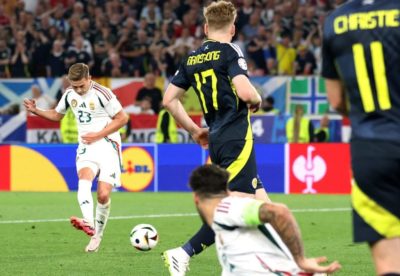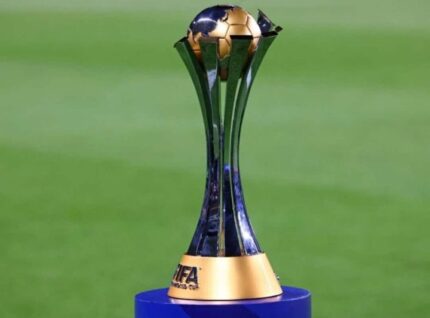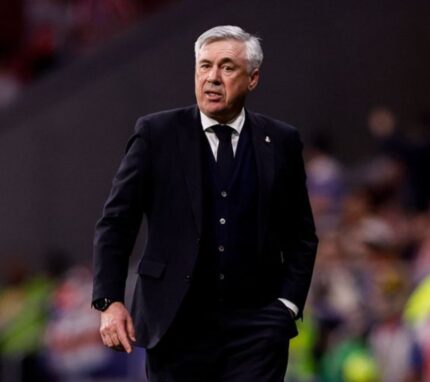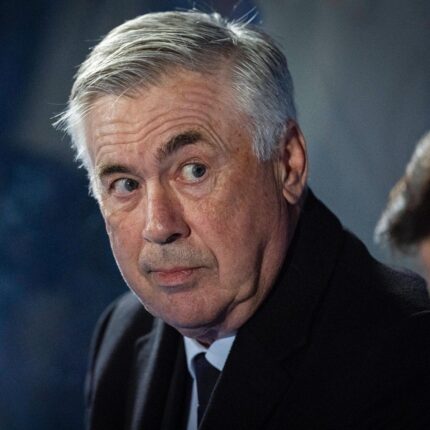The first half of the Euro 2024 match between Scotland and Hungary was marked by intense physical play and tactical battles. The match kicked off with immediate physical engagement, as John McGinn of Scotland won a free kick in the defensive half within the first minute due to a foul by Márton Dárdai. This set the tone for a match that would see numerous stoppages for fouls and free kicks, demonstrating the aggressive approach both teams brought to the pitch.
Scotland appeared to be on the receiving end of Hungary’s physicality early on, with Márton Dárdai committing another foul just a minute later, giving Scotland another free kick on the right wing. The repeated fouling by Hungary in the opening minutes highlighted their strategy to disrupt Scotland’s rhythm and assert dominance. This was further evidenced by the yellow card shown to Callum Styles in the 18th minute for a bad foul on McGinn, emphasizing the contentious nature of the encounter.
Key Moments and Missed Opportunities
Despite the numerous fouls and interruptions, both teams managed to create notable opportunities. The 8th minute saw Hungary’s Bendegúz Bolla making a significant attempt with a right-footed shot from outside the box, which was saved by the Scottish goalkeeper. This early shot on target signaled Hungary’s intent to capitalize on any offensive chances they could create amidst the physical tussle.
The 41st minute marked a critical moment for Hungary when Willi Orbán’s header hit the bar following a set-piece situation orchestrated by Dominik Szoboszlai. This near miss was one of the closest attempts of the half and showcased Hungary’s threat from set pieces. Just before the half ended, Szoboszlai had another opportunity with a left-footed shot from outside the box that went too high, reflecting Hungary’s persistent efforts to break the deadlock.
Defensive Solidity and Midfield Battles
Scotland’s defense was put to the test several times throughout the half, particularly dealing with Hungary’s set pieces and long-range efforts. The Scottish defenders, including Jack Hendry and Scott McKenna, had to be alert to block shots and clear dangerous balls. Hendry, despite being involved in multiple fouls, played a crucial role in maintaining defensive solidity for Scotland.
The midfield battle was equally intense, with players like John McGinn and Scott McTominay for Scotland, and Dominik Szoboszlai and Roland Sallai for Hungary, constantly vying for control. McGinn’s ability to win free kicks in critical areas was instrumental in relieving pressure and creating attacking opportunities for Scotland. However, the frequent fouls and yellow cards, such as those received by Willi Orbán and András Schäfer, disrupted the flow of the game and prevented either side from establishing sustained periods of dominance.
As the first half concluded with a 0-0 scoreline, it was clear that both teams were evenly matched in terms of physicality and tactical awareness. The numerous fouls and missed opportunities set the stage for what promised to be a compelling second half, with both sides needing to refine their strategies to break the deadlock and secure a crucial victory in their Euro 2024 campaign.
Second Half Begins with Intensity
The second half of the Scotland vs. Hungary match kicked off with both teams eager to break the deadlock. The action started almost immediately, with Hungary winning a free kick in the defensive half just one minute in, due to a foul by Scotland’s Anthony Ralston. This set the tone for a half filled with aggressive play and numerous set-pieces. Hungary maintained pressure with an early corner at the 48th minute, which led to a saved attempt by Roland Sallai, indicating Hungary’s offensive intent.
Scotland struggled to maintain discipline, as evidenced by Scott McTominay’s yellow card in the 50th minute for a bad foul. Despite these setbacks, they managed to create chances, like Ché Adams’ shot from outside the box in the 53rd minute that narrowly missed the target. This constant back-and-forth suggested a tense battle for control, with both teams making crucial defensive interventions to keep the scoreline intact.
Mid-Half Substitutions and Tactical Adjustments
As the game progressed into the mid-half, both teams made strategic substitutions to enhance their performance. Hungary substituted Ádám Nagy in for Callum Styles at the 61st minute, looking to inject fresh energy into their midfield. Scotland, responding to Hungary’s aggressive play, also made significant changes, including bringing on Lawrence Shankland and Stuart Armstrong in the 76th minute, hoping to bolster their attacking options.
The game was temporarily halted around the 68th minute due to injuries to Hungary’s Barnabás Varga and Scotland’s Angus Gunn. This pause was crucial for both teams to reassess their strategies. Hungary took advantage by making further substitutions, including replacing the injured Varga with Martin Ádám and Márton Dárdai with Attila Szalai. These changes aimed to reinforce Hungary’s lineup, which was reflected in their persistent attacking efforts, though they faced continuous resistance from Scotland’s defense.
Dramatic Closing Moments and Hungary’s Late Winner
The final minutes of the match were filled with drama and intensity. Multiple offsides and fouls highlighted the desperation of both teams to secure a win. Notable among the late attempts was a series of blocked shots and saves, showcasing the defensive resilience on both sides. Scotland had several near chances, including a blocked header by Grant Hanley in the 90’+9 minute and a missed shot by Callum McGregor.
However, the match took a decisive turn in the 90’+10 minute when Hungary capitalized on a swift counter-attack. Kevin Csoboth, assisted by Roland Sallai, scored a crucial goal with a right-footed shot to the bottom left corner, breaking the deadlock and securing a 1-0 lead for Hungary. Despite a frantic final few minutes, Scotland was unable to find an equalizer, and the match concluded with Hungary emerging victorious. Kevin Csoboth’s celebration earned him a yellow card, underscoring the emotional and hard-fought nature of this Euro 2024 encounter.














